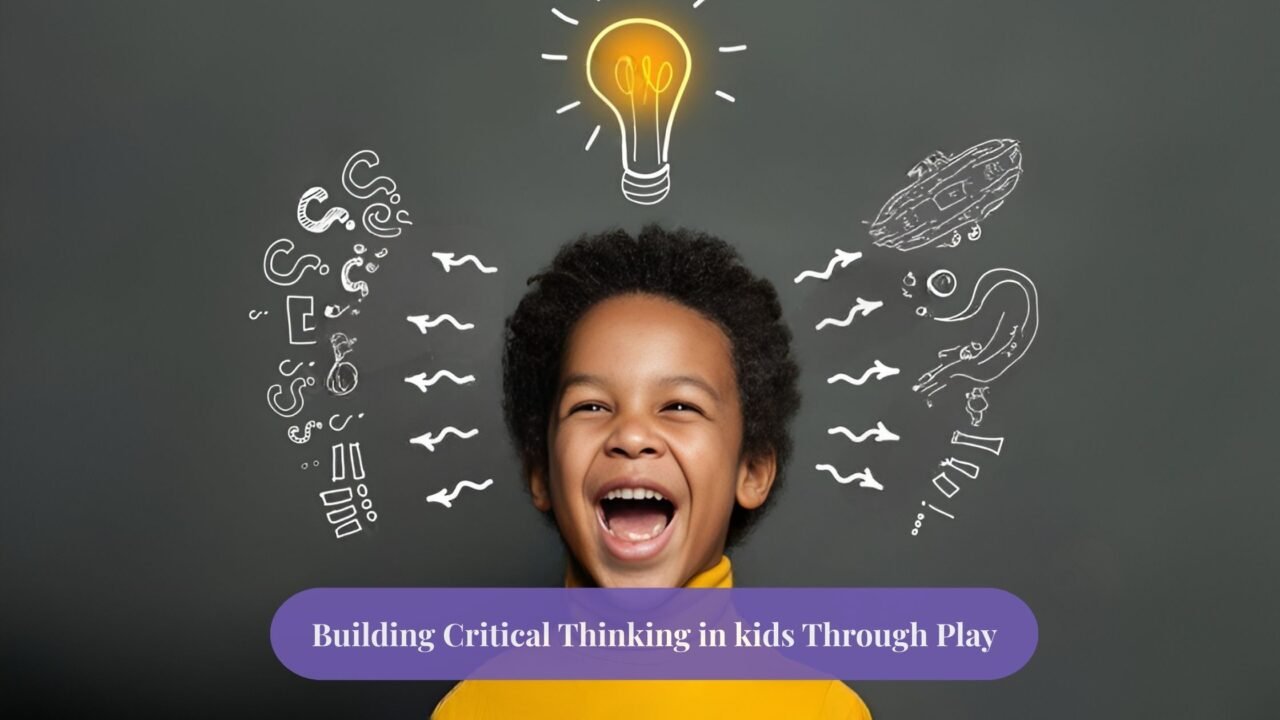In today’s ever-changing world, children need more than memorization and grades to succeed—they need the ability to think critically, solve problems creatively, and adapt to new situations. Critical thinking is a life skill that allows kids to analyze, question, and evaluate before taking action. One of the most effective and natural ways to build this skill is through play. Far from being just a way to pass time, play is a child’s first laboratory, where curiosity and imagination become tools for learning. With the right environment whether at home or at the best preschool in Abu Dhabi play can be transformed into a powerful foundation for learning and personal growth.
Why Play Matters for Critical Thinking
Children are naturally curious. From stacking blocks to pretending they’re running a shop, every game provides opportunities to test ideas and solve problems. Play allows children to experiment with different outcomes, ask questions, and test their theories without fear of failure. Unlike rigid classroom tasks, play gives children freedom, which builds confidence and resilience.
When a child is challenged to build a taller tower or solve a puzzle, they are learning persistence, patience, and logical reasoning. These small moments of trial and error help children develop the ability to pause, think, and respond thoughtfully essential skills that later translate into academic success and better decision-making in real life.
Play as a Way to Teach Good Manners to Kids
Play is not only about thinking skills; it is also a natural and powerful way to Teach Good Manners to Kids. When children play with others, they face everyday social challenges—like sharing toys, waiting for a turn, or resolving conflicts. These moments are valuable opportunities to teach patience, empathy, and kindness.
For instance, if two children both want to play with the same toy, guiding them through the process of asking politely, listening, and taking turns becomes a gentle lesson in respect. Over time, these repeated interactions strengthen social and emotional intelligence. Children begin to realize that being considerate toward others not only helps in play but also in building stronger friendships. Parents and teachers can make this learning even richer by modeling polite language and praising children when they show good manners during play.
Building Creativity Through Play
Play also stimulates imagination, which is directly tied to critical thinking. When children role-play as doctors, teachers, or explorers, they are learning how to put themselves in new situations and solve problems from different perspectives. Pretend play gives children a safe space to explore feelings, express ideas, and create unique solutions. This creative thinking strengthens their ability to approach problems with flexibility a skill they will rely on throughout life.
Parents can nurture this by providing open-ended toys like blocks, art supplies, or costumes. These resources encourage children to come up with multiple solutions, rather than sticking to one right answer. The more opportunities children have to imagine and create, the stronger their critical thinking muscles grow.
The Connection Between Play and Problem-Solving
When children engage in puzzles, board games, or outdoor challenges, they are constantly solving problems. Each decision they make, whether to try a new move or change a strategy, sharpens their decision-making skills. Even physical play, such as climbing, biking, or balancing, encourages kids to evaluate risks, make judgments, and adjust their actions.
Problem-solving through play also teaches persistence. Children learn that failure is not the end but a step toward success. They become more willing to try again and develop resilience, which is crucial for navigating challenges later in school and life.
Play and Personality Development For Kids
Equally important, play has a significant impact on Personality Development For Kids. Through playful interactions, children begin to understand their strengths, interests, and abilities. A child who loves building structures may develop confidence in logical reasoning, while another who enjoys storytelling might become skilled in communication. These discoveries shape how children see themselves and interact with the world.
Moreover, play builds essential traits such as leadership, teamwork, independence, and self-control. These personality traits are not taught through textbooks but are learned naturally through everyday interactions and playful experiences. Parents and teachers can support personality growth by encouraging children to try new activities, celebrating small achievements, and allowing them to express themselves freely during play.
Encouraging Play-Based Learning at Home
While schools provide structured opportunities for play-based learning, parents can easily extend these lessons at home. Activities like cooking together, gardening, or playing memory games encourage kids to ask questions, think critically, and stay engaged. Even simple daily interactions like asking, “What do you think will happen if we try it this way?” stimulate problem-solving skills.
Outdoor activities are just as valuable. From building sandcastles to exploring nature trails, outdoor play gives children space to think independently and discover the world at their own pace. These small, consistent opportunities make learning a natural and enjoyable part of daily life.
Conclusion
From encouraging creativity and problem-solving to shaping personality and social skills, play is one of the most powerful tools for raising confident and thoughtful children. Parents play a vital role, but schools also provide the structured environment children need to practice and grow. If you’re looking for a nurturing space that encourages curiosity, play, and lifelong learning, consider enrolling your child in the Best Preschool In MBZ where every activity is designed to inspire both critical thinking and personal growth.




